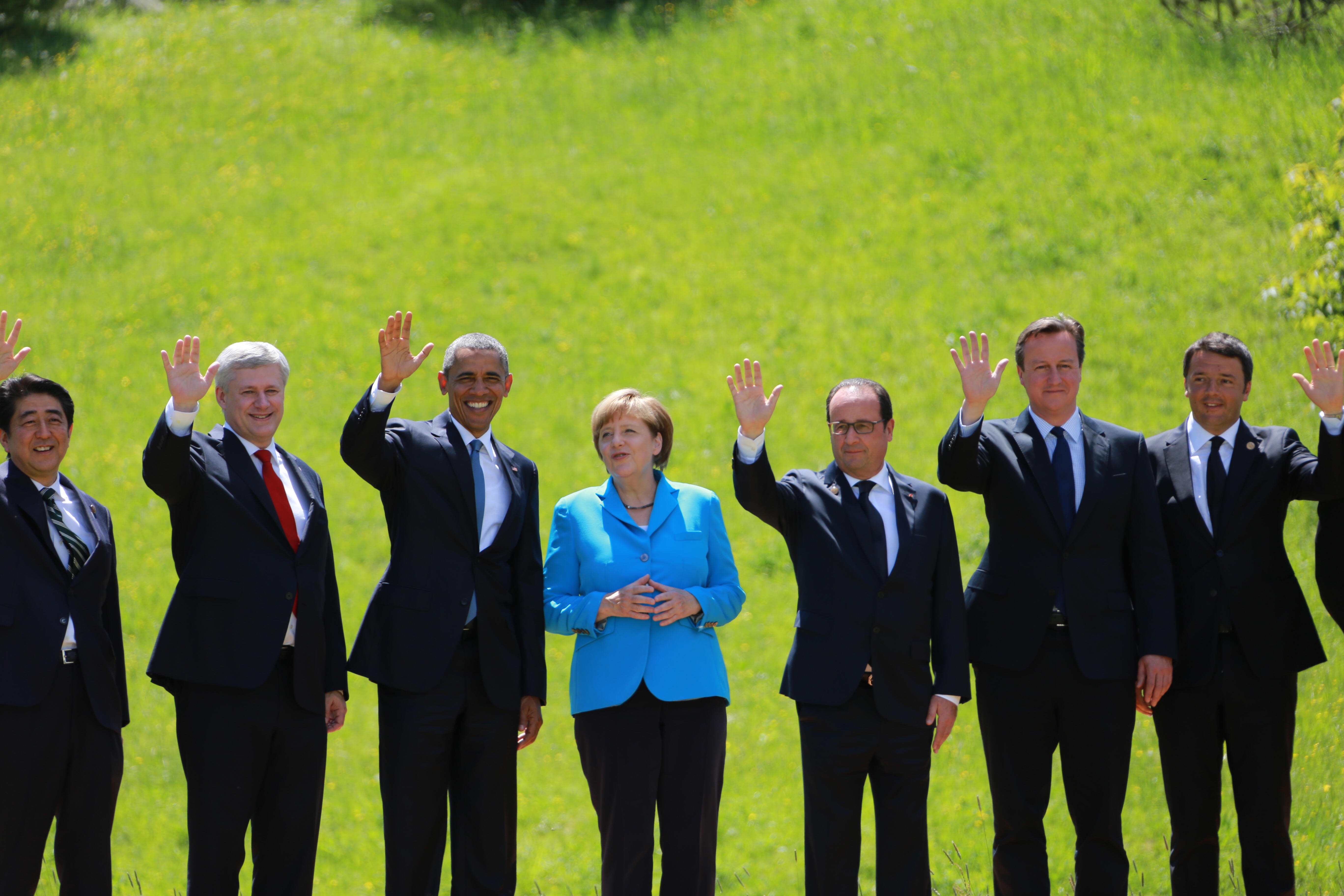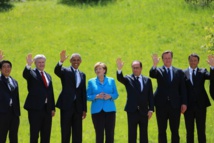Reality can surprise every observer, since there are results that can be verified sufficiently in specific manner, as well as over time passed. For the policy of assistance to developing countries, those are political arrangements and intentions: for example, the fund support set up to improve the protection of labor in countries with economies in transition.
The fight against poverty and global social policy is not only a manifestation of pure humanity, there is a decent share of their own benefit. Social situation in the Muslim countries and developing countries with economies in transition should be stabilized to such an extent that Islamism was no longer in conducive environment there. In addition, people do not run away from stable countries with more or less reliable economic. Those who talks about their values, should not hide their interests. And at the same time, those, who defend their own interests, must not forget about values.
The seven industrialized nations also developed a joint course on the issue of climate protection. In part, they only consolidated what has been agreed previously. At the same time, G7 has set a new target by revealing a commitment of shifting to carbon-free energy in the current century. If a new comprehensive agreement on climate will be developed by the end of the year at a world conference in Paris, it will be a serious test for the political will of the seven industrialized democratic countries in decision-making in the field of climate protection.
As to foreign policy, G7 found a certain position in relation to Russia and its aggressive policy aimed at its neighbors. At the same time, now the European Union have an obligation to extend sanctions against Russia at the end of June.
All this promises to be fulfilled. Those are political bills, and soon we will know whether they are paid or not. First of all, there should be results.
Europe dominated at the G7 meeting much more than on some other summit. One has only to look at the participants to understand how much the view of the Old World is prevailing: six from the nine participants of the summit were EU countries or the institutions.
G7reform could be foreshadowed there. Many of the topics discussed were also of a strong European focus: the unresolved debt crisis in the euro zone, the situation around Greece, the conflict in the east of Ukraine, the wave of refugees in the Mediterranean Sea as a result of the collapse of the Middle East and civil wars in Africa. Whilst the last topic of US interests for geopolitical reasons, Canada and Japan do not have anything to do with the European policy on refugees and migration.
So, just from a European perspective, all of this worth powder and shot. G7 must have already understood that the summit could have been less costly (in terms of the organization). The issue is must be discussed, as well as in the case of other major events - whether Eurovision or the Olympic Games. If we talk about reducing costs, G7 could be ahead there. The next time it might have impressed even those who think that knows everything in advance.
source: dw.de
The fight against poverty and global social policy is not only a manifestation of pure humanity, there is a decent share of their own benefit. Social situation in the Muslim countries and developing countries with economies in transition should be stabilized to such an extent that Islamism was no longer in conducive environment there. In addition, people do not run away from stable countries with more or less reliable economic. Those who talks about their values, should not hide their interests. And at the same time, those, who defend their own interests, must not forget about values.
The seven industrialized nations also developed a joint course on the issue of climate protection. In part, they only consolidated what has been agreed previously. At the same time, G7 has set a new target by revealing a commitment of shifting to carbon-free energy in the current century. If a new comprehensive agreement on climate will be developed by the end of the year at a world conference in Paris, it will be a serious test for the political will of the seven industrialized democratic countries in decision-making in the field of climate protection.
As to foreign policy, G7 found a certain position in relation to Russia and its aggressive policy aimed at its neighbors. At the same time, now the European Union have an obligation to extend sanctions against Russia at the end of June.
All this promises to be fulfilled. Those are political bills, and soon we will know whether they are paid or not. First of all, there should be results.
Europe dominated at the G7 meeting much more than on some other summit. One has only to look at the participants to understand how much the view of the Old World is prevailing: six from the nine participants of the summit were EU countries or the institutions.
G7reform could be foreshadowed there. Many of the topics discussed were also of a strong European focus: the unresolved debt crisis in the euro zone, the situation around Greece, the conflict in the east of Ukraine, the wave of refugees in the Mediterranean Sea as a result of the collapse of the Middle East and civil wars in Africa. Whilst the last topic of US interests for geopolitical reasons, Canada and Japan do not have anything to do with the European policy on refugees and migration.
So, just from a European perspective, all of this worth powder and shot. G7 must have already understood that the summit could have been less costly (in terms of the organization). The issue is must be discussed, as well as in the case of other major events - whether Eurovision or the Olympic Games. If we talk about reducing costs, G7 could be ahead there. The next time it might have impressed even those who think that knows everything in advance.
source: dw.de



















